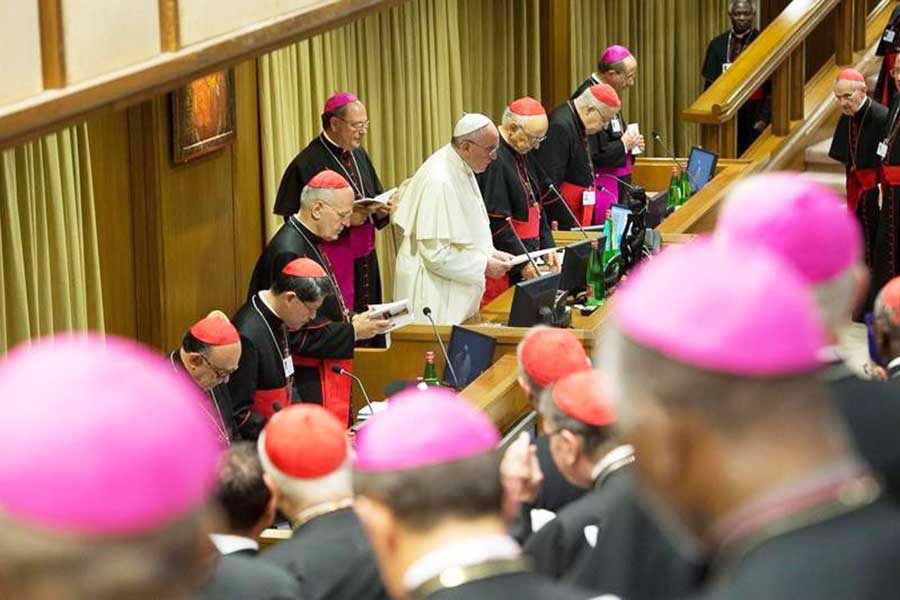The final document issued from this year’s Extraordinary Synod of Bishops on the Family contained language that was significantly colder in tone than the preliminary statement released last week.
The initial report shook the Catholic community and the world by offering — for the first time in the Vatican’s history — a somewhat-hospitable, welcoming attitude towards LGBT Catholics and same-sex couples.
“Homosexuals have gifts and qualities to offer Christians: Are we capable of welcoming these people, guaranteeing to them a fraternal space in our communities?” read the statement under the passage titled, “Welcoming Homosexual Persons.”
While hailed by many as a victory for LGBT Catholics, conservative bishops quickly drew a hard line against Pope Francis’ progressive statements by watering down the language in the final version released last weekend at the end of the synod.
The revised paragraph referred to homosexuality as a “problem” that Catholic families have to confront and stated, “People with homosexual tendencies must be welcomed with respect and delicacy.” The passage title now reads, “Providing for Homosexuals,” with the word “welcoming” now absent.
The first version said same-sex unions could often constitute a “precious support in the life of the partners,” while the new one says gay unions often constitute “valuable support in the life of these persons.”
It also repeated the church teaching that marriage is only between a man and a woman.
Michael Viola, president of the Philadelphia chapter of DignityUSA, said the final report “was one step forward and three steps back.”
“The fact that the language was reworded in legal church doctrines at the synod implies this was intentional — not just a poor translation of the original Italian text. It is a slap in the face to LGBT Catholics,” Viola said.
The LGBT-affirming paragraphs failed to receive the needed two-thirds vote by the bishops.
However, the document remains a talking point going into the next synod, a year from now. It is expected that more bishops will be invited in 2015, many of whom will be appointees of Pope Francis, and who could form an open-minded majority that can curtail the cries of conservative doctrinal purists appointed by the previous pope.
Unfortunately, Viola sees little room for progress between now and the next synod, he said.
“If there was any type of drawbridge trying to get LGBT Catholics back into the church community, that bridge has been drawn up. I don’t think it will come back between now and the 2015 meeting, but it will remain a topic of discussion,” he said.
Viola’s frustrations point towards similar challenges the church has faced as it struggles to adapt to the ever-changing demographics of its congregation.
“You know, it’s not just LGBT [issues] and same-sex marriage the church is grappling with now,” Viola said. “There are also issues of polygamy in some African countries. Each culture has its own issues the church is coming face to face with. They are trying to come up with one set of rules that applies to everybody, and that is not going to work.”

